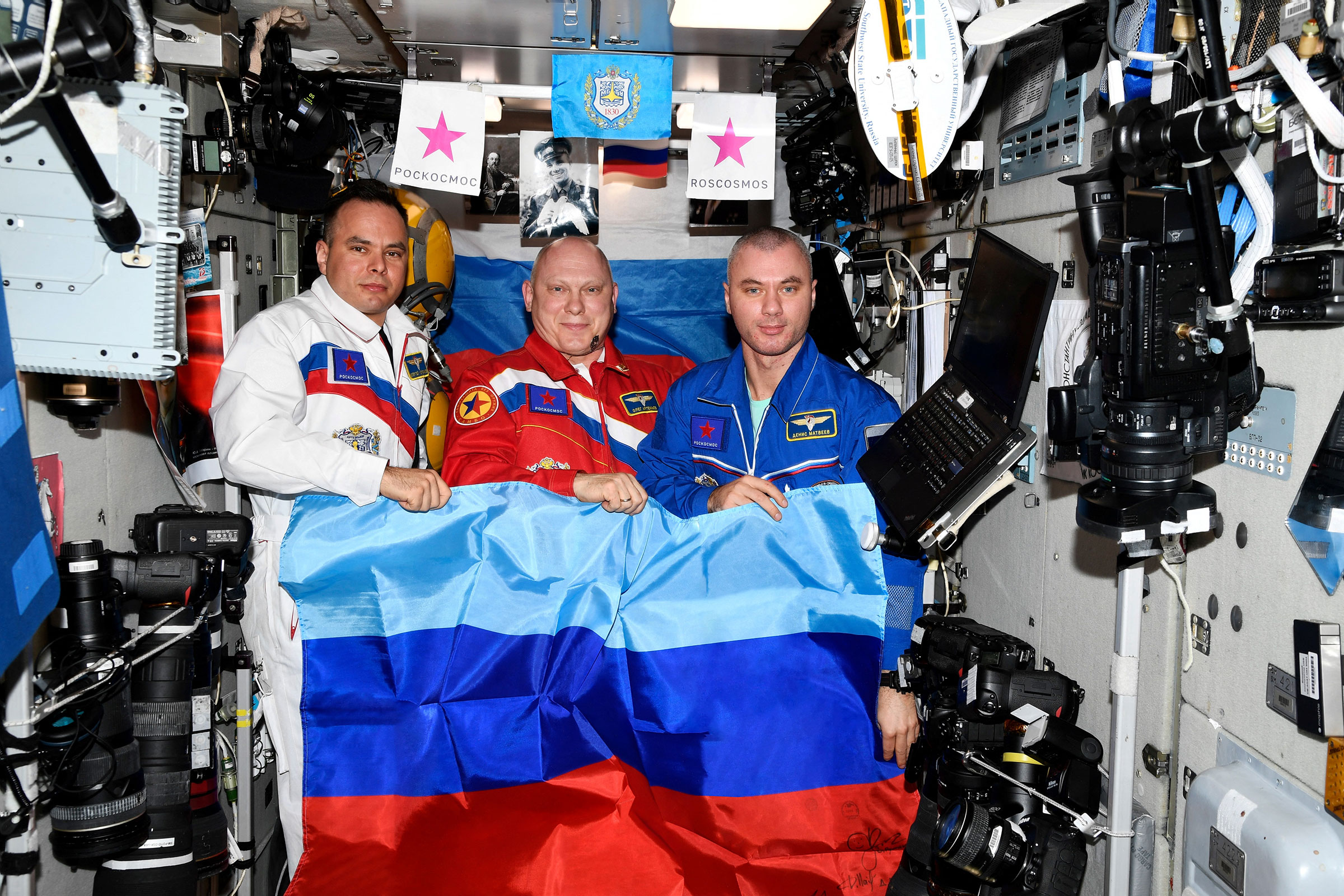
It was only eight years ago that German space station astronaut Alexander Gerst threatened, as he put it, to kick his crewmate’s butt. The butt in question belonged to American astronaut Reid Wiseman and the kicking, happily, would be administered only by proxy. It was June 26, 2014 and the U.S. and Germany were about to face off in the World Cup. Gerst’s playful taunt (“I hope we kick their butt a little bit”) was revealed by NASA in a press release headlined, “Friendly Rivalry Pits U.S. vs. German Astronauts on Space Station.” For the record, Gerst got his wish, with Germany prevailing 1-0 in the match—and all remained amicable aboard the station.
Not so much in 2022. Ever since the start of Russia’s war in Ukraine in February, NASA and the Russian space agency Roscosmos have been at pains to stress that work would continue as collegially as always aboard the station—even as tensions remain between Washington and Moscow “Obviously, we understand the global situation,” said NASA associate administrator Kathy Leuders in a statement earlier in the year. “But as a joint team, these teams are operating together.”
Or at least they were. Yesterday that comity broke down after the three Russian cosmonauts aboard the station posed for pictures holding the flags of the ostensibly free Luhansk People’s Republic and Donetsk People’s Republic, two regions in eastern Ukraine that Russia has seized and, to hear the Kremlin tell it, liberated. NASA was having none of it.
“NASA strongly rebukes Russia using the International Space Station for political purposes to support its war against Ukraine,” the space agency said in an email to reporters, “which is fundamentally inconsistent with the station’s primary function among the 15 international participating countries to advance science and develop technology for peaceful purposes.”
Those, in the delicate parlance of space station diplomacy, were fighting words. It was 55 years ago that the U.S., Russia, and other nations signed the celebrated “Treaty on Principles Governing the Activities of States in the Exploration and Use of Outer Space, Including the Moon and Other Celestial Bodies,” better known simply as “The Outer Space Treaty.”
The pact bound signatory nations to refrain from militarizing space, and a later 1998 accord further spelled out rules for good behavior aboard the International Space Station specifically. Nothing in either treaty forbade any nation from engaging in the kind of symbolic, finger-in-the-eye gesture that the Russians made this week, but nothing of the kind had ever happened before either.
More from TIME
“It is unacceptable that the ISS becomes a platform to play out the political or humanitarian crises happening on the ground,” wrote European Space Agency Administrator Josef Aschbacher in a July 8 tweet. “The purpose of the ISS is to conduct research & prepare us for deeper exploration. It must remain a symbol of peace and inspiration.”
That, for now, is as far as the kerfuffle has gone. There is no word—and crew discretion being what it is, there will likely be no word—about how all of this is playing out among the astronauts and cosmonauts themselves. But for now the Luhansk and Donetsk flags have been tucked away and work has proceeded as usual aboard the giant orbiting platform. That is the good news. The bad news is that 400 km (248 mi.) below, things are proceeding too in the killing fields of besieged Ukraine. The Russian cosmonauts’ bit of performance art is over. The Russian nation’s war goes on.
This story originally appeared in TIME Space, our weekly newsletter covering all things space. You can sign up here.
More Must-Reads from TIME
- Donald Trump Is TIME's 2024 Person of the Year
- Why We Chose Trump as Person of the Year
- Is Intermittent Fasting Good or Bad for You?
- The 100 Must-Read Books of 2024
- The 20 Best Christmas TV Episodes
- Column: If Optimism Feels Ridiculous Now, Try Hope
- The Future of Climate Action Is Trade Policy
- Merle Bombardieri Is Helping People Make the Baby Decision
Write to Jeffrey Kluger at jeffrey.kluger@time.com